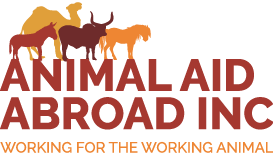LAZAWO Aug Update - Clinic Treats and Cares for 253 Donkeys in Bugwema Village
The LAZAWO team recently conducted a remarkable clinic in Bugwema Village, making a massive impact on the health and welfare of local donkeys.
Over the course of the clinic, an impressive 253 donkeys received treatment for a variety of conditions, including wounds, trypanosomiasis, tick infestation, eye infections, worm infestations, and colic. Additionally, para-vet Steven made 49 follow-up visits to ensure the ongoing health of the working animals.
At the clinic, the dedicated team focused on wound management, using essential materials such as Albamycin wound spray, antibiotics, antiseptics, gauze, and syringes. Each donkey received the careful attention it deserved, with treatments tailored to their specific needs.
Vaccination was also a key component of the clinic, with 250 donkeys vaccinated against rabies and tetanus. This proactive approach is crucial in preventing these serious diseases, ensuring the donkeys remain healthy and protected.
To further enhance donkey welfare, the team conducted educational sessions for farmers on proper handling and care techniques. This initiative is vital for fostering a culture of compassion and responsibility towards these animals, and the farmers have warmly embraced the management and treatment practices provided by the LAZAWO AAA project.
The achievements from this clinic are commendable! The successful vaccination against major diseases like rabies and tetanus marks a significant milestone. Moreover, the demand for similar projects has surged, with more villages seeking the invaluable services provided by LAZAWO.
However, challenges remain. Many farmers live in scattered communities, making transportation a necessity to reach more individuals in need. Additionally, drought conditions have forced donkeys to travel long distances for water, posing further strain on their well-being. To address this, LAZAWO has estimated the costs for building a watering trough at a central water-collection site, allowing donkeys to hydrate properly before embarking on their journeys home.
The appreciation shown by donkey owners highlights the significant impact of the AAA-LAZAWO project. They are grateful for the free medical care for their donkeys.
Looking ahead, the next clinic is scheduled for October 4th and 5th. The LAZAWO team is excited to continue their mission, ensuring that even more donkeys receive the care they need.








